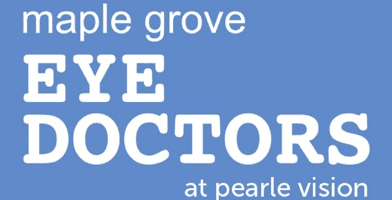LASIK is FDA-approved for people aged 18 and older who have achieved ocular maturity. A stable prescription, meaning your prescription hasn’t changed for at least two consecutive years. It is important for eyes to be generally healthy, free of diseases, injuries, and infections.

Is Lasik Surgery Risky? Well, all surgeries have risk —- as does Lasik surgery, and Lasik surgery involves your very precious eyesight, which is why the FDA plans to warn patients that it has risks.
It is true that the vast majority of patients that have undergone Lasik surgery are satisfied, but it’s important to consider the risk factor when considering having Lasik, and our doctors can help you understand the risks and the potential benefits. If you’re considering Lasik surgery, you should know that double vision, dry eyes, difficulty driving at night, and in rare cases, persistent eye pain are all possible, and you might still need eyeglasses. That said, Lasik is considered commonplace and with very low risk; every year, half a million Americans undergo Lasik surgery to correct poor vision.
Lasik surgery involves reshaping the cornea, the clear round dome that covers the front of the eye and focuses light on the retina at the back of the eye. The surgeon cuts a thin flap in the cornea, folds it back, then uses a laser to sculpt the cornea, and then replaces the flap. A Lasik operation normally takes only 15 minutes per eye; patients usually pay out of pocket since the procedure is considered cosmetic and is not covered by insurance. Certain chronic conditions such as diabetes and irregular astigmatism, pregnancy, or the use of some medications may put patients at risk for poor outcomes.

As with all surgeries, it is important to consult experienced eye care specialists to find out if you are a good candidate for this surgery. Our optometrists will examine your eyes to determine that your prescription hasn’t changed for at least two consecutive years and that your eyes are generally healthy and free of diseases, injuries, and infections.
Who can get LASIK?
If you need glasses or contacts to see well, it is likely you have imagined what life would be like to be able to see without them. You have probably thought: Should I get LASIK? And, you may have wondered if you could be a good candidate. It is an important question because LASIK is an elective procedure, not a medical necessity. Glasses or contact lenses are options, which have their own associated risks. Each person has to weigh the inherent risks and benefits to decide how to handle their vision correction needs and if a laser vision correction procedure is right for them. An important deciding factor in choosing laser vision correction is the surgeon’s recommendation, which is based on whether or not a patient is a good LASIK candidate.
Who is not a candidate for LASIK?
It isn’t well understood, but not everyone who wants LASIK should have it. In fact, on average between 15 and 20 percent of patients are considered ineligible for LASIK. However, there have been many advances in the field of vision correction surgery, which means that if a patient isn’t a good candidate for LASIK, it is very possible there is a different type of eye correction surgery that will give them the benefit of having great vision without needing to rely on glasses or contact lenses. People are most familiar with LASIK, which is why the conversation around vision correction procedures often begins with it.
Who is a good candidate for LASIK?

While every patient is unique, the following are 5 general guidelines surgeons use in determining if a patient is a candidate for LASIK eye surgery:
- Prescriptions within FDA-approved treatment parameters
- Ocular maturity, prescription stability, and eye health
- General Health
- Corneal shape and thickness
- Realistic expectations
1. Prescriptions within FDA-approved treatment parameters
Do your eyeglass prescriptions fall within the treatable range? Our eye doctors can determine this in a Lasik consultation.
- up to +6.00 diopters of hyperopia,
- up to 6 diopters of cylinder/astigmatism
- up to -12.00 diopters of nearsightedness
2. Ocular maturity, prescription stability, and eye health
- LASIK is FDA-approved for people aged 18 and older who have achieved ocular maturity.
- A stable prescription, meaning your prescription hasn’t changed for at least two consecutive years.
- It is important for eyes to be generally healthy, free of diseases, injuries, and infections.
3. General health
Certain health issues and medications may interfere with the healing process, making laser vision correction a poor choice. It is important patients share their complete health history with their surgeon to ensure a recommendation for candidacy based on all available facts. Determining if you are a LASIK candidate requires a complete eye examination that includes a series of sophisticated tests to screen patients for these problems that may make you a non-candidate.
There are several absolute contraindications to LASIK. Many patients are not good candidates for laser vision correction because of systemic or ocular disease. Conditions, such as cataracts, diabetes, or autoimmune diseases like lupus or rheumatoid arthritis, may make LASIK and other laser vision correction options not a good choice for some patients. Also, certain medications, such as corticosteroids, acne medications, and pregnancy can affect the healing process. Being upfront with your Optometrist about your medications and health history is necessary to get an accurate answer to the question: “should I have LASIK?”
4. Corneal shape and thickness
How does LASIK work? LASIK improves your vision by reshaping your cornea – the surface of the eye that helps focus light to create an image on the retina. If your cornea is too thin or misshapen, or if you have eye diseases like significant glaucoma or corneal scarring you are likely not a candidate for LASIK. During your initial consultation, your ophthalmologist will measure the thickness of the cornea to make sure there is enough tissue for the reshaping required to achieve the desired amount of correction.
5. Realistic expectations
Understanding the limitations of laser vision correction is important to a satisfactory outcome. Patients with unrealistic or uninformed expectations for LASIK recovery, the procedure, and results may not achieve their goals with an elective laser vision correction procedure like LASIK.
Part of knowing if you should have LASIK is understanding if you are a good or even excellent candidate for the procedure. The best way to determine if you are a candidate for LASIK is to work with a highly qualified OPTOMETRIST and have a complete evaluation of your eyes and vision. Then both you and your eye doctor will have the information needed to make the best recommendation for you and which surgeon they would recommend..
SCHEDULE A LASIK CONSULTATION NOW
Why Do People Opt For Lasik?
Lasik may be done for various reasons. Primarily, it is done to help improve your vision and reduce your dependence on corrective eyewear. Some of the common reasons include:
- Nearsightedness (Myopia)
Lasik can correct nearsightedness for individuals that have difficulty seeing distant objects. During Lasik, the cornea is reshaped to allow light to focus properly on the retina, improving distance vision.
- Farsightedness (Hyperopia)
The procedure can also treat farsightedness, where individuals that may have trouble seeing nearby objects. Lasik corrects the refractive error, allowing improved near and distance vision.
- Astigmatism
Lasik also effectively corrects astigmatism caused by an irregularly shaped cornea or lens, which leads to distorted or blurry vision. Lasik helps create a more symmetrical curvature, resulting in a precise or sharper vision.
- Mixed Astigmatism
Lasik can also address mixed astigmatism, a combination of nearsightedness and farsightedness along with astigmatism. By reshaping the cornea, Lasik can fix refractive errors and astigmatism in the eye.
- Convenience
Many find it very inconvenient to wear glasses or contact lenses. You may experience discomfort or irritation associated with glasses, such as fogging, limited peripheral vision, or needing to clean and maintain them constantly. Contact lenses can also require regular replacement and demand proper hygiene practices. Lasik offers you the convenience of clearer vision without all these hassles.
- Active Lifestyle
If you lead an active lifestyle, you can benefit from Lasik. With this procedure, you can engage in activities like participating in sports or working in professions that require clearer vision. You do not have to worry about breaking or falling glasses or the inconvenience of wearing contact lenses during intense physical exertion.
- Improved Self-Confidence
You could feel conscious about wearing glasses, particularly if you have been wearing them for a long time. Lasik can enhance your self-confidence and self-esteem, making you feel more comfortable with your natural appearance.
What Are The Risks Involved?
While Lasik is generally safe and effective, like any surgical procedure, there can be complications. Before undergoing surgery, you must know about its side effects in detail to seek the right treatment in case of an emergency:
- Dry Eyes
One of the common side effects of Lasik is temporary or persistent dryness in the eyes due to a disturbance in the production and distribution of tears. Most of these cases can be managed with lubricating eye drops, but sometimes the symptoms might last longer.
- Glare, Halos, and Starbursts
Some people may experience visual disturbances such as glare, halos, or starbursts, specifically at night or in low-light conditions. These are usually temporary but can persist in some cases.
- Flap Complications
Lasik works to create a thin corneal flap, which is then lifted to access the underlying corneal tissue for reshaping. It can lead to flap-related complications like flap dislocation, wrinkles, or debris getting under the flap. Although rare, these issues may require additional surgical intervention for correction.
- Regression
Following Lasik, a small percentage of people may experience regression, where the eye slowly returns to its pre-surgery refractive state. It may again need additional treatments or adjustments to maintain the desired visual acuity.
- Vision Quality Issues
While Lasik aims to improve vision, you might experience a slight decrease in the quality of your vision. This can manifest in the form of night vision problems, reduced contrast sensitivity, or changes in visual acuity, even if the refractive error is adequately corrected.
- Infection and Inflammation
Although rare, Lasik carries a risk of developing eye infections or inflammation. Proper pre and post-operative care can help minimize these side effects.
- Under-Correction or Over-Correction
Sometimes, there can be under-correction (insufficient vision improvement) or over-correction (excessive vision correction), leading to enhancement procedures or the use of corrective lenses to address these issues.
Generally, Lasik can be performed with minimal discomfort or issues. However, it is crucial to speak to a qualified eye care professional to understand the potential risks and benefits specific to your situation.
How Long Does LASIK Last? Is LASIK Temporary or Permanent?
Does LASIK Surgery Last Forever?
The short and simple answer is yes. Procedures such as LASIK, PRK, and SMILE are permanent forms of laser vision correction.
However, what many people really want to know is: Will I have to wear glasses again? The answer to that question is more complex. Why? Because the eyes are part of your body and, just like the rest of your body, they change as a result of age and other factors – changes a laser vision correction procedure such as LASIK can’t prevent from happening.
So, let’s get into the facts about eyes and vision.
What Age to Get LASIK?
When you were younger, say between the ages of 7 and 23, you might have noticed changes in your vision, maybe a lot of changes. Eyes develop and mature like the rest of the body during this time. And, if there are vision problems such as nearsightedness, farsightedness, and astigmatism, those problems can change along with the eye itself. Young adults in their late teens and early twenties are often very interested in laser vision correction, and some are told they need to wait until their prescription is “stable,” – meaning their vision hasn’t changed in the past year. It’s just a part of the maturing process when the body and the eyes undergo a lot of changes over a relatively short period of time.
However, the body doesn’t stop changing with time – and neither do the eyes. For most of us, age-related changes don’t really become a factor until after age 40. Most people around 40 begin to notice their reading vision – items in the near range of vision – isn’t as crisp and clear as it used to be. This is a result of the aging of the lens – the part of your eye that sits behind the iris. These changes are called presbyopia. Over time, the lens stiffens and eventually becomes cloudy – this is called a cataract. Presbyopia and cataracts are part of the aging process.
The next natural question may be: Well, if I’m going to need corrective lenses in my 40s, is it worth investing in laser vision correction now? The answer is yes. When considering how old you should be when you get Lasik, many important factors exist.
Importantly, laser vision correction procedures don’t treat the lens; they reshape the surface of the eye, known as the cornea. That reshaping is permanent and can have a lasting impact on the quality of your vision for years. To clarify the situation, we looked at the latest research and asked Drs. Eric Donnenfeld and Gregory Parkhurst to help answer these questions, including “How long does Lasik last?”
Q: How long does LASIK last? Is LASIK temporary or permanent?
If you are wondering how long does Lasik last? The effects of Lasik surgery permanently correct the vision prescription – nearsightedness, farsightedness, or astigmatism. After Lasik surgery your eyes can continue to change over the course of your lifetime. In a recent study, 94% of patients stated they did not need prescription lenses 5 years after having Lasik.
DONNENFELD: How long Lasik lasts partially depends on how old you are when you have the laser vision correction procedure. It is a very persistent myth, people think that Lasik is not permanent and that it may only last a few years. The reality is, that Lasik permanently corrects the vision prescription – your nearsightedness, farsightedness, or astigmatism – that you come in with to have the procedure. It does this by using a laser to reshape the cornea, eliminating the imperfections of the cornea that cause your nearsightedness, farsightedness, and/or astigmatism. Those imperfections are gone, so the idea that a patient’s eyes occasionally “regress” following Lasik doesn’t really make sense. However, what does happen on occasion is a patient’s myopia (nearsightedness) or hyperopia (farsightedness) actually progresses. Like all living things, your eyes can change over the course of your lifetime. It wouldn’t be reasonable to expect to buy a pair of glasses and have them last your entire lifetime. Your eyes can change, but they will never go back to being as bad as they were prior to Lasik.
PARKHURST: We think some of the basis for this myth is the reality of presbyopia – Lasik doesn’t prevent it, but it happens to most everyone. Presbyopia typically begins somewhere around the age of 40. The lens of the eye – not the cornea that was reshaped with Lasik, but the lens behind the cornea – loses its ability to focus on objects nearby. Even if you were born with good vision in both eyes, you will likely need reading glasses in your mid-forties – the same is true for people who chose to have their vision corrected with a procedure such as Lasik. Importantly, Lasik doesn’t make presbyopia worse or make it happen sooner. However, because presbyopia is an eventuality for everyone, making the most out of your Lasik vision correction can depend on how old you are when you have your procedure. If you are in your early 20s, then you can look forward to years of great vision without needing prescription lenses.
WHAT THE RESEARCH SAYS:
A recent study in the Journal of Cataract and Refractive Surgery of patient-reported data concluded that quality-of-life and satisfaction rates remained high 5 years after LASIK. The study also reported more than 94% of patients stated they were not wearing distance prescription lenses 5 years after having LASIK.
LASIK Complications and side effects are extremely rare. Occurring in less than 1 percent of procedures. LASIK recovery can look different for each patient. Some patients may need LASIK enhancement after having surgery.
Q: What is a LASIK enhancement? Why do some people need a LASIK enhancement procedure?
PARKHURST: A LASIK enhancement is a follow-up LASIK procedure that sometimes needs to be performed if your original vision correction surgery is unsatisfactory, or if your vision changes significantly over time. With modern LASIK, the enhancement rate is 1-2 percent in the first 12 months and then about 1 percent a year after that as patients’ eyes can change with time. So, for example, 10 years after LASIK, approximately 10 percent of patients may require an enhancement procedure to maintain their excellent vision. Patients whose refraction (the eye refracts light entering it, so as to form an image on the retina) is not stable prior to LASIK have an increased risk of needing enhancements. This is why your LASIK surgeon will want to know if your glasses have changed over the last few years prior to your procedure. The good news is that laser vision correction can very often be repeated after a thorough evaluation to make certain the patient is still a good LASIK candidate. Some surgeons charge an enhancement fee, while other surgeons perform these corrections at no cost to the patient. This is one of the important questions to ask when considering LASIK surgery.
WHAT THE RESEARCH SAYS:
A recent large-scale study of more than 9,000 LASIK procedures (eyes), conducted in Israel over a five-year period noted a retreatment rate of less than 2 percent.
Q: Does LASIK impact future vision correction options?
DONNENFELD: As we’ve discussed before, LASIK treats your existing vision correction needs, but doesn’t prevent the changes that naturally occur with age – such as presbyopia and cataract. However, LASIK doesn’t impact a patient’s ability to choose surgical treatment options for those conditions down the road. These include lens replacement surgery, corneal implants, and monovision LASIK – in which one eye is corrected for distance and one eye for reading.
WHAT THE RESEARCH SAYS:
Cataract surgeons need to have a patient’s complete health history, including any past refractive (laser vision correcting) procedures like LASIK to make the best recommendation for excellent vision after cataract surgery.
Laser vision correction procedures, like LASIK, PRK, and SMILE, permanently reshape the cornea to improve the eye’s ability to focus. LASIK and other laser vision correction procedures treat common vision problems like nearsightedness, farsightedness, and astigmatism to help reduce or eliminate the need for glasses and contact, which can interfere with an active lifestyle. If you have more questions about how long LASIK lasts or if LASIK is permanent, SCHEDULE A LASIK CONSULTATION NOW with your local eye doctor.






